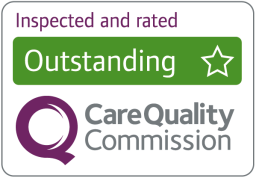Health benefits and risks of using the injection
To decide if the injection is right for you, there are different health benefits and risks to think about.
Unlike the combined pill, patch or ring it’s safe to take if you have a history of blood clots, a family history of thrombosis, or if you have migraines with aura or a body mass index (BMI) over 35.
If you use it for a long time, the injection may reduce your natural oestrogen levels, which increases your risk of osteoporosis (thinning of the bones). Your oestrogen levels will return to what is normal for you after you stop the injections.
The main side effect is that it can stop periods altogether.
I was terrified of all the horror stories dealing with weight gain, mood swings, never-ending periods and the like. However, I could not remember to take the pill and I really do not want to be pregnant so I gave it a go and never looked back.
I love Sayana Press. I have not had a single day of bleeding since I had my first injection and I don’t need to worry about taking a pill. I get a year's supply from my doctor and inject myself at home which is quick and easy. No weight gain. I can’t think of anything bad to say.
Health benefits of the contraceptive injection
it may provide some protection against cancer of the uterus and pelvic inflammatory disease
for people with sickle cell disease, the contraceptive injection may help to lower the severity of sickle cell crisis pain
people who have heavy or painful periods, PMS or endometriosis can benefit from the fact that the contraceptive injection often stops periods altogether
it may reduce your risk of cancer in the ovaries and lining of the womb
if you suffer from ovulation pain then the injection can be helpful as no ovulation means no ovulation pain
Health risks of the contraceptive injection
The injection is a safe and effective method of contraception. But there are some risks associated with using it.
Whether you’re likely to experience these health risks can often be predicted by looking at your medical history and your family's medical history.
Before you're given a contraception prescription, you'll be asked questions about your health. These are so the clinician can check your risk of any of these health problems.
Bone density and osteoporosis
If you use the contraception injection for a long time it can lead to reduced bone density. This can develop into osteoporosis.
This is because there’s a link between lower levels of oestrogen – which is a side effect of the injection – and a small loss in bone mineral density.
Oestrogen plays a role in maintaining bone strength. It’s usually produced during the first half of the menstrual cycle. The contraceptive injection stops ovulation, which also stops the menstrual cycle, so less oestrogen is produced.
This is important for 2 age groups in particular:
those under 18, who may not have reached their adult bone mineral density yet
those over 45, who need good bone strength as they head into menopause, which also causes loss of bone mineral density
Bone mineral density can also be lowered if you’re a smoker.
At the moment we don't know from scientific evidence whether this loss of bone density results in an increased risk of bone fractures.
Bone density usually returns to normal when you stop using the contraceptive injection. And you can help achieve a higher bone density by:
eating a healthy diet
doing weight-bearing exercise, which includes walking and running
If you’re using injectable contraception, it’s important to talk to your GP or sexual health clinic every 2 years to assess your risk of osteoporosis.
Does the injection increase risk of cancer?
Breast cancer
There may be a very small link between the injectable contraceptive and an increased risk of breast cancer. This risk reduces over time after you stop the contraceptive injection.
There’s never been a large enough study on Depo Provera users to show any definitive link, so the evidence on this is not conclusive.
Cervical cancer
There's some evidence, although it’s not clear, that the injectable contraceptive can increase your risk of cervical cancer if you use it for more than 5 years. This risk reduces over time after you stop the contraceptive injection.
One large study of 12,000 women showed no increased risk of cervical cancer, but other studies have suggested that using injectable contraceptives over the long term may be associated with an increased risk.
Because there isn’t yet a definite answer, if you’re using the injection it’s a good idea to keep up to date with cervical smear tests and make sure you’ve had your HPV (human papillomavirus) vaccine.
No proven risk
There's no evidence to show that the injection increases your chance of developing these conditions.
HIV
There has been extensive research into whether the contraceptive injection increases the chance of getting HIV. There’s no conclusive evidence so far that there’s any increased risk.
Blood clots (thrombosis)
There’s no proven link between the contraceptive injection and an increased risk of thrombosis.
Heart disease
Although it’s not possible to either prove or disprove a relationship between the contraceptive injection and heart disease, it’s not usually recommended for people who have many other risk factors for heart disease.
Everything you wanted to know about sexual health and wellbeing - your questions answered by our expert team.



